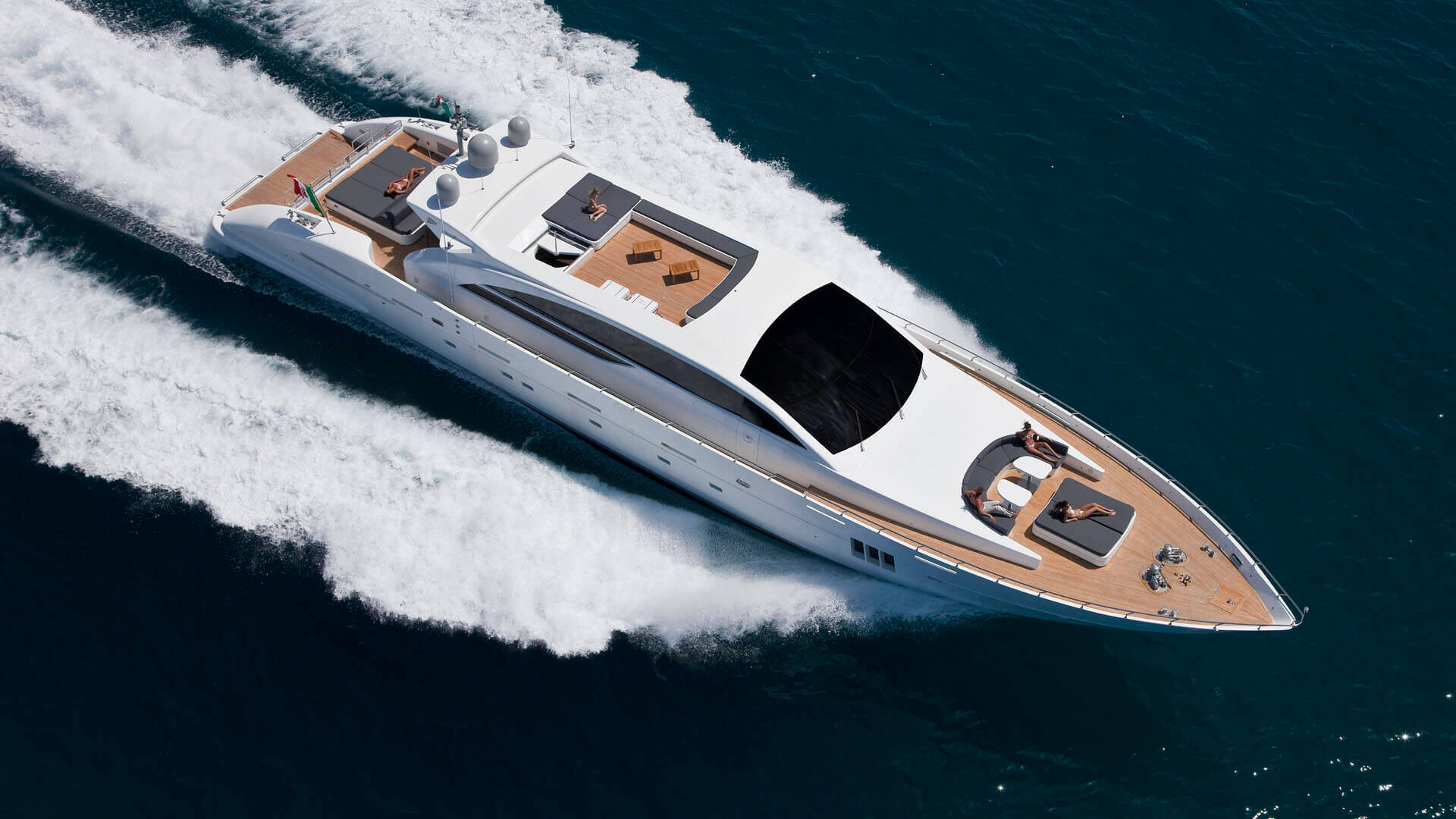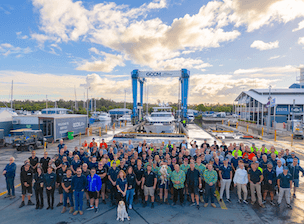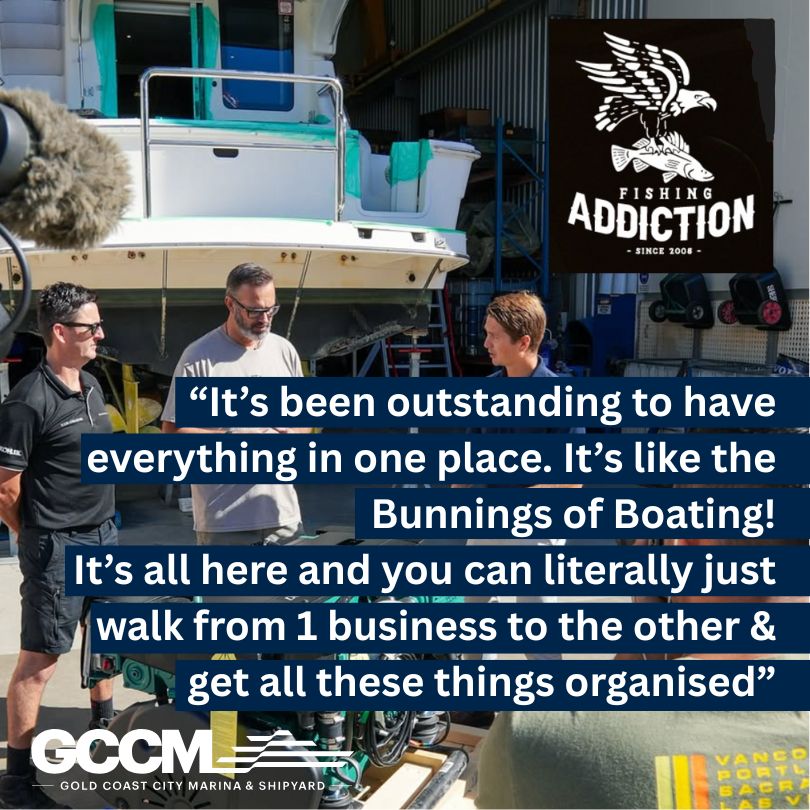Essential Boat Maintenance Tips for Year-Round Enjoyment
Introduction
At Gold Coast City Marina & Shipyard, we believe that proper boat maintenance is the cornerstone of safe, enjoyable boating experiences. Whether you’re cruising the spectacular Gold Coast waterways or planning longer voyages, keeping your vessel in peak condition ensures reliability, safety, and longevity. Our comprehensive guide offers essential maintenance tips to keep your boat shipshape throughout the year, leveraging the expertise of our extensive network of marine specialists.
The Essential Boat Maintenance Checklist

1. Hull Inspection and Maintenance: Your First Line of Defence
Regular hull inspections are crucial for identifying potential problems before they escalate. Begin by examining your hull for any signs of damage, cracks, blisters, or compromised areas. Pay particular attention to the waterline, where stains or discolouration commonly accumulate due to constant water exposure and marine growth.
For fibreglass hulls, inspect for any signs of osmosis or delamination. A gentle tap test along the hull can help identify hollow sounds that might indicate separation of layers. Aluminium hulls should be checked for corrosion, particularly around fittings and where different metals meet.
For comprehensive professional hull inspections and repairs, our specialists at Australian Marine Enterprises offer expert assessment services and can address any issues with precision and care.
When it comes to hull maintenance, proper antifouling is essential for vessels kept in water. Antifouling paint prevents marine growth, improves fuel efficiency, and protects the hull from water absorption and damage.
We have several on-site expert trades who can provide expert antifouling services using the latest products suitable for Queensland’s tropical waters.
2. Engine Care: The Heart of Your Vessel
Your boat’s engine requires regular maintenance to ensure reliability and longevity. For many boat owners, engine troubles account for the majority of on-water breakdowns—issues that can be prevented with proper care.
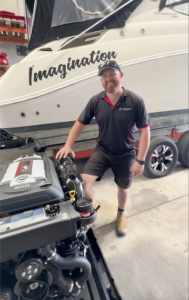
Start with basic engine checks:
- Check oil levels and condition before each outing
- Inspect coolant levels in freshwater-cooled engines
- Examine belts for wear, proper tension, and alignment
- Ensure all hoses are secure and free from cracks or leaks
- Regularly replace fuel filters according to manufacturer recommendations
For outboard engines, flush with fresh water after each use in saltwater to prevent corrosion. Inboard engines benefit from scheduled coolant flushes and heat exchanger cleaning.
Our specialists at Trans Marine Asia Pacific provide comprehensive engine maintenance, from routine services to complex repairs. For Volvo Penta engines, Volvo Penta offers specialised service and genuine parts, ensuring optimal performance and reliability. Find the right mechanical specialist for your boat here.
Remember that preventative maintenance is far less costly than emergency repairs, particularly when you’re offshore or in remote locations.
3. Electrical Systems: Powering Your Adventures
Marine electrical systems face unique challenges from constant exposure to moisture, salt, and vibration. Regular inspections and maintenance are essential to prevent failures that could leave you stranded.
Begin with your boat’s power source—the batteries. Inspect them for:
- Clean, tight connections free of corrosion
- Proper fluid levels in non-sealed batteries
- Secure mounting to prevent movement
- Healthy voltage readings both at rest and under load
Test all onboard electrical systems, including navigation lights, bilge pumps, electronics, and communication equipment. Look for any signs of corrosion on switches, panels, and connections. Marine-grade electrical components are designed to withstand harsh environments, but they still require regular checks.
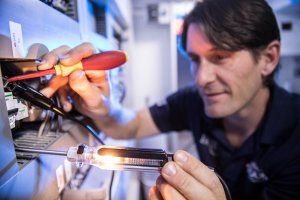
For comprehensive electrical system inspections and repairs, Ocean Electrics and Benson and Brown Marine Electrics offer specialised services backed by decades of experience.
Modern boats increasingly rely on sophisticated electronics for navigation, communication, and entertainment. Ensure these systems are properly protected with appropriate fuses and circuit breakers. Electronic Marine Solutions can assist with upgrades, installations, and troubleshooting of your boat’s electronic systems.
4. Through-Hull Fittings and Seacocks: Preventing Water Ingress
Through-hull fittings and seacocks are critical components that deserve special attention during maintenance checks. These fittings create necessary openings in your hull for systems like engine cooling, head discharge, and bilge pump discharge.
Every through-hull fitting should be:
- Free from corrosion or deterioration
- Properly sealed with marine-grade sealant
- Equipped with a functional seacock valve
- Fitted with a secure hose and appropriate marine-grade clamps
Operate each seacock valve regularly to ensure smooth function, as they can seize if left unused. Replace any valves that show signs of corrosion or are difficult to operate.
Keep a wooden plug tied near each through-hull fitting as an emergency measure. These can be quickly inserted to stop water flow if a hose or fitting fails.
For professional assessment and maintenance of through-hull fittings, Watson Marine Engineering provides expert services, ensuring these critical components remain watertight and functional.
5. Fuel System Maintenance: Ensuring Clean, Reliable Power
Fuel system problems can cause engine failures and potentially dangerous situations. Modern ethanol-blended fuels present additional challenges for marine engines, making proper fuel system maintenance especially important.
Key fuel system maintenance tasks include:
- Regularly inspecting fuel lines for softness, cracking, or leaks
- Checking fuel system connections for security and signs of leakage
- Replacing fuel filters according to manufacturer recommendations
- Using fuel stabilisers when the boat will be idle for extended periods
- Keeping tanks nearly full during storage to minimise condensation
Water contamination is a common fuel system issue in marine environments. Consider installing a fuel-water separator if your boat doesn’t already have one. Sweep Marine Services can advise on the best fuel system components and provide professional maintenance services.

For boats that have been in storage, it’s advisable to drain old fuel and replace it with fresh fuel before the season begins. This prevents engine problems caused by degraded fuel.
6. Steering and Control Systems: Safety at the Helm
Your boat’s steering and control systems are critical safety components that require regular inspection and maintenance. Issues with these systems can lead to loss of control at critical moments.
For hydraulic steering systems:
- Check fluid levels in the reservoir
- Inspect hoses and connections for leaks
- Test for smooth, responsive steering
- Look for signs of corrosion on rams and connection points
For mechanical steering:
- Inspect cables for fraying or corrosion
- Check pulleys and quadrants for smooth operation
- Ensure proper tension in the steering cable
- Lubricate moving parts according to manufacturer’s specifications
Control systems for throttle and shift mechanisms should operate smoothly without binding or excessive play.
Regular inspection of steering and control systems is particularly important before extended voyages or when planning to navigate challenging conditions.
7. Safety Equipment: Be Prepared for Emergencies
Safety equipment maintenance is not just good practice—it’s a legal requirement. Regular checks ensure this equipment will function properly when needed most.
Essential safety equipment checks include:
- Verifying expiration dates on flares and fire extinguishers
- Testing navigation lights for proper operation
- Ensuring life jackets and throwable devices are in good condition
- Checking that bilge pumps operate correctly in both manual and automatic modes
- Confirming that emergency communications equipment functions properly
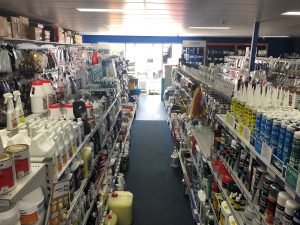
Australian Boating Supplies offers a comprehensive range of safety equipment and can advise on the latest regulations and requirements for your vessel type and intended use.
Consider scheduling a professional safety audit before the season begins. This provides peace of mind and ensures compliance with all relevant regulations.
8. Exterior Cleaning and Protection: Preserving Appearance and Value
Regular cleaning and protection of your boat’s exterior surfaces prevent damage from sun, salt, and marine growth while maintaining your vessel’s appearance and value.
Different boat surfaces require specific cleaning products and techniques:
- Gelcoat benefits from regular washing with boat-specific cleaners and annual polishing and waxing
- Painted surfaces require gentle cleaning and UV protection
- Metal components need corrosion protection and regular freshwater rinsing
- Canvas and vinyl benefit from specific cleaners and protectants designed for marine use
After each use, particularly in saltwater, rinse your boat thoroughly with fresh water to remove salt deposits that can accelerate corrosion and damage finishes.
For professional detailing services, check here.
9. Interior Maintenance: Comfort and Functionality Below Deck
Your boat’s interior spaces require regular maintenance to prevent mould, mildew, and deterioration while ensuring comfort and functionality.
Key interior maintenance tasks include:
- Regularly cleaning and treating upholstery to prevent mildew
- Checking cabinetry and bulkheads for water intrusion or damage
- Ensuring plumbing systems function properly without leaks
- Maintaining galley appliances according to manufacturer recommendations
- Addressing any signs of moisture or condensation promptly
For upholstery and interior trim maintenance, Classic Marine Trimming, Clark Marine, and Asone offer expert services to restore and maintain your boat’s interior spaces.
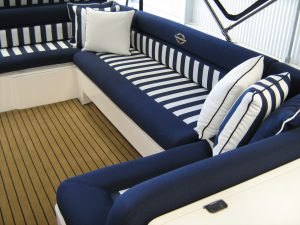
Proper ventilation is essential for preventing moisture buildup when the boat is not in use. Consider installing solar-powered vents or dehumidifiers for boats kept in humid climates.
Proper boat maintenance is an investment in safety, reliability, and enjoyment on the water. By following these essential maintenance tips and partnering with the expert businesses at Gold Coast City Marina & Shipyard, you can ensure your vessel remains in peak condition year-round. From routine checks to comprehensive professional services, our marine trade directory offers everything needed to keep your boat performing at its best. Explore our complete range of services at our Marine Trades Directory and discover why Gold Coast City Marina & Shipyard is Australia’s most comprehensive marine facility.
Ready to book a spot for your boat? Call us on (07)5502 5888








